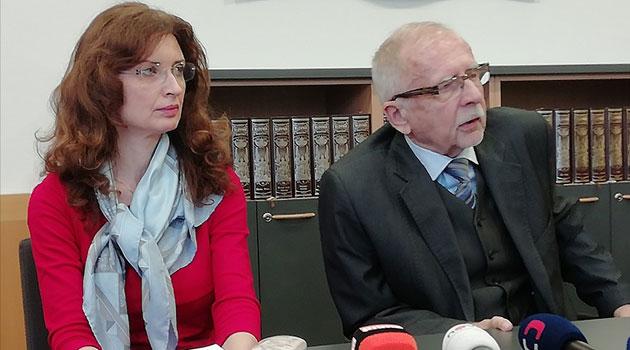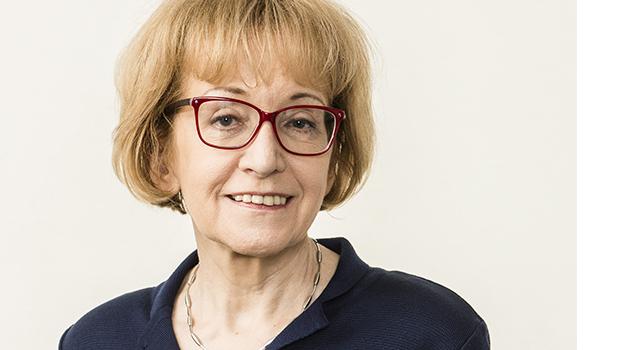Czech Deputy Public Defender of Rights wants to investigate human rights, new Public Defender is downplaying that aspect of the office

Last November, members of the Czech Chamber of Deputies elected Monika Šimůnková, a former Government Human Rights Commissioner, to the post of Deputy Public Defender of Rights. She was nominated as a candidate by both the President of the Republic and the Senate.
Šimůnková succeeded the outgoing Deputy Public Defender of Rights, Stanislav Křeček, who has today become her boss. An interview with her has now been published by the regional daily Žatecký a lounský deník.
The Deputy Public Defender of Rights is elected in the exactly same way the Public Defender of Rights is, which Šimůnková believes gives it a bit of an exceptional position compared to other deputies of leading officials. Naturally, the post depends on the Public Defender of Rights, who is empowered, if he or she so chooses, to entrust part of the agenda to the Deputy for decision-making and exercising the powers of the office.
Šimůnková was born in Prague in 1972. She graduated from the Faculty of Law at Charles University and passed the bar examination in 2002.
From 2004-2010 she was the Deputy Director of the Our Child Foundation (Nadace Naše dítě) and in 2015 became its director, after which she became an adviser to the Education Minister in the area of inclusive education. From 2011-2013 she was the Czech Government Human Rights Commissioner.
In the year 2014, Šimůnková won the Lawyer of the Year award in the Civil and Human Rights category. In 2018 she worked as a lawyer for the Czech Helsinki Committee.
For many years she has been a member of the Committee on the Rights of the Child at the Czech Government Human Rights Council and a member of the Working Group on Midwifery at the Czech Government Council on the Equality of Women and Men. In the interview, she says: “I firmly believe that the ombudsman will entrust part of the agenda to me, as traditionally has been done. I even have a proposal for him – that he entrust the area of human rights to me. My entire professional life, for more than 20 years, I have been involved precisely in the protection of minorities and vulnerable groups in the population. From my perspective, this subject is very important, and the office of the ombudsman must pay attention to it, as a matter of law.”
News server Romea.cz has excerpted part of the interview below. The full interview (in Czech only) is at https://zatecky.denik.cz/zpravy-z-ceska/zastupkyne-ochrance-prav-simunkova-urad-ombudsmana-20200218.html .
Q: Aren’t you concerned that exactly on [human rights] there will be a clash between you, because it’s exactly that agenda, which is part of the job description of the ombudsman, that Stanislav Křeček is downplaying? His remark is famous, for example, that Romani people have to fend for themselves when it comes to their rights and that the ombudsman is mainly meant to take care of the interests of the majority society. If you take up human rights subjects [as Deputy Public Defender of Rights] with full enthusiasm, then you may come across resistance from him.
A: I was selected by the members of the lower house along with my human rights experience and my past work. Therefore, I assume the lower house wants to have, at the office of the ombudsman, in the job of deputy, a person with consistent opinions about that area. I want to continue what this institution has done and is doing, therefore, on the questions of discrimination, equal treatment, monitoring the Convention on the Rights of Persons Living with Disabilities, and in the area of the rights of incarcerated or institutionalized persons, where I intend to take advantage of all the competences and legal obligations that the office of the ombudsman affords.
Q: Should the ombudsman become a national human rights institution, as Anna Šabatová sought to make it?
A: I think yes. The powers that the ombudsman has acquired in recent years logically lead to that conclusion. If we are meant to have such an institution, then it would be correct if the authority that already has such competences and experience should become that institution. It would be absurd to establish a new institution at far greater a financial cost.
